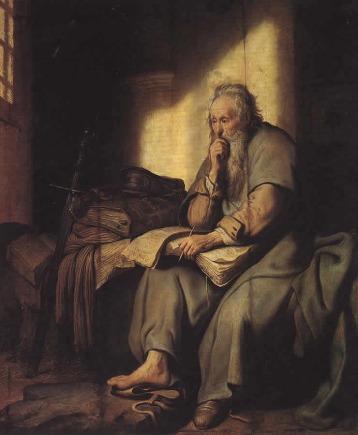Dr. Ralph Winter typed a letter on a typewriter to his parents and younger brother David in May of 1953, while he was a Doctoral student at Cornell University. He says to start that a few minutes ago, no he guesses about one hour ago, his advisor stopped by with the rest of his thesis. The advisor’s point of view, which Winter believes justified, is that he wants this thesis in good shape and written clearly. Winter does not blame him; the advisor is in no hurry. It is a work in progress which merits carefulness. Winter confesses it is not right for him to be zealous about arriving at home in record time, meaning that he speeds through the job in not quite a polished form. His advisor is more realistic than Winter about proportions of the job of refining the written work. Winter states, “In my experience I have rarely had time to revise things, and such a process is not familiar to me nor something which I naturally do. Most of my writing is like what I am doing now. If something is not plain I clear it up in the next sentence.” The skill of reviewing something with the aim of re-expressing it to a greater advantage is not a skill Winter has fully developed in his experience, to say the least.
His advisor feels as though Winter writes well when he writes carefully. However, the second half of his thesis is not at all polished but rather what Winter sat down to write. It is true that the second half is not the ticklish sort of writing that is found in the first half, but in moving from the first half of the thesis into the second half, the advisor discovers numerous necessary modifications of phrasing throughout. So after spending most of a day reading it and likely feeling pressed for time at the point where he is having to mark points of style more and more, about 20 pages into it he brings it to Winter with a handwritten note on the front asking Winter to go over it with care again. He is to give up on rushing because the advisor will accept and approve nothing less than his best job.
What all this means is that Winter will not have his final oral exam before the next week, when his anthro advisor will be gone, which is all right but he thinks this professor would have been easier on him than one of the other men who may substitute in his final oral. “But the one good thing is that while my Math advisor will be leaving for a week, he is certainly coming back; if he were to leave I am sure I would give up trying to pass an oral with a minor in Math.” Winter laments that under the circumstances, his final oral exam will not be before June 10th and he is very sorry this will cause him to be back home later. His time with his brother David before he leaves will be even shorter, for which he apologizes.
Winter is eager to submit a finished piece of work and hates that he has rushed through the thesis, which conflicts with his tendency to be perfectionistic. Even so, he mentions that it is too bad his advisor desires for his writing style to be just like his. Winter will need to write it and make changes again, then turn it in for a final check before the very last typing. The Winters guess they will extend their $5 typewriter for another week or two. At least it will produce a larger-type, clearer copy for the advisor to read. Winter thinks that “part of the psychology of his revisions is involved in the appearance of the page—if there have been some changes on a page already, he is all the more inclined to treat the page like a non-final copy.” So if all the pages are retyped, more readable and clear, Winter hopes this means they will be less needy of revision.




